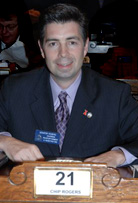It’s not just VLCIA’s Community Assessment that argues for a public transportation system in Valdosta-Lowndes County. Getting people to work without requiring cars is an even bigger problem in larger metropolitan areas, but many of the issues are the same here.
 Nancy Andrews and Audrey Choi wrote for Huffpo 20 Aug 2012,
How Transit-Oriented Development Can Help Get America To Work,
Nancy Andrews and Audrey Choi wrote for Huffpo 20 Aug 2012,
How Transit-Oriented Development Can Help Get America To Work,
To truly get America back to work, we have to focus on more than
jobs, jobs, jobs. It is about integrating jobs, transportation, housing and community services in ways that work equally well for lower- and upper-income families.
Vibrant communities where residents can walk to shops, restaurants, grocery stores and community services; and where public transportation provides convenient connections between home and work can be built. Planning community development with public transportation as a central consideration — transit-oriented development or TOD — can spur economic growth, sometimes dramatically. But that approach has not been systematically applied to communities of all income levels.
For these reasons, it is important for government, public transit agencies, nonprofits, foundations and the private sector to come together so that thriving communities for families of all economic levels can be created.
 It’s a safety issue, too.
Far more Americans die in traffic accidents than in foreign wars,
and widening roads farther out just makes the problem worse.
Currently, Lowndes County
says that’s not pertinent.
It’s a safety issue, too.
Far more Americans die in traffic accidents than in foreign wars,
and widening roads farther out just makes the problem worse.
Currently, Lowndes County
says that’s not pertinent.
Maybe we should change that.
 What if we built
communities, not cul-de-sacs?
What if we built
communities, not cul-de-sacs?
-jsq





 for
for 











